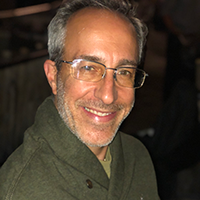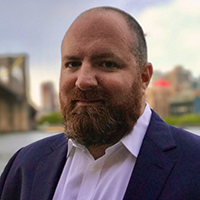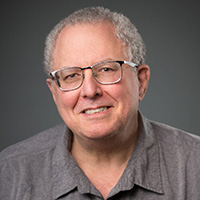With the rising popularity of cannabis and CBD vape products globally and increasing attention to health concerns (such as the 2019 EVALI vape crisis in the US), there is a greater need to understand how the liquid, and the associated vapor emitted from devices, can be characterized to ensure the highest quality product reaches the consumer as safely as possible. As both organic and inorganic contaminants pose health concerns, today’s laboratories require optimized techniques to analyze both target compounds and unknowns in vape smoke to understand the potential impact to human health.
This free two-hour Cannabis Analytical Science Program (CASP) Education and Training session provides an industry overview on the state of cannabis vape science and testing from a panel of subject matter experts speaking to methodologies, testing apparatus, and past and future studies. Originally aired July 29, 2021.
Moderator: Palmer Orlandi, AOAC INTERNATIONAL Deputy Executive Director and Chief Science Officer
Manik Gudimani, Can-Lab, Michigan

Dr. Jeffrey Raber currently holds multiple patents on cannabis-based technologies, particularly regarding terpenes, has published many peer-reviewed articles, and is widely recognized as a leading expert on the chemistry of cannabis and hemp-derived products. In 2010, Dr. Raber founded The Werc Shop, one of the nation’s preeminent laboratories specializing in identifying and classifying cannabis varietals through pioneering terpene fingerprinting and advanced metabolomics approaches. Dr. Raber earned his Bachelor of Science in biochemistry from Lebanon Valley College. He earned his Ph.D. in organic chemistry from the University of Southern California, with an emphasis on developing new synthetic methodologies useful in pharmaceutical drug discovery and manufacturing.

Arnaud Dumas de Rauly is a proven thought leader in the science, technology, and supply chain of vaping products. Arnaud currently serves as Chairman of the ISO (International) Standards Committee TC126/SC3 on Vaping Products & Chairman of the CEN (European) Standards Committee TC437 on Vapor Products. He is also a member of the informal Marijuana Science and Policy Work Group managed by the Colorado Department of Revenue’s Marijuana Enforcement Division (MED) and Colorado Department of Public Health and Environment (CDPHE). His assistance and knowledge of the vaping space have been requested by multiple regulatory bodies across North America, Europe, and Asia. He is also the former President of FIVAPE, the French vaping trade federation and now serves as the organization’s Secretary General for International Relations.
Bilingual in French and English (dual citizenship), fluent in Spanish, Arnaud has worked in France, China, UAE, Tunisia, Spain, UK and the USA. He frequently serves as a keynote speaker at international vaping and cannabis conferences across the globe. Arnaud holds an Executive MBA & a Masters of Engineering Degree.

Sr. Robert M. Strongin is a Professor of Organic Chemistry at Portland State University. He has studied the chemistry of vaping since 2013. He is interested in determining how flavorings, including terpenes, as well as other vape constituents, react and degrade when heated and aerosolized. In 2017 he began to investigate cannabis vaping and has published the first peer-reviewed report on the specific byproducts formed when dabbing terpenes, and, more recently, on the reactions and products that form upon vaping and dabbing concentrated cannabis oil mixtures. Dr. Strongin runs an internationally-recognized research program, founded two biotech startup companies, and is known for his contributions to STEM education. In addition to tobacco control and cannabis science, he is an expert in the field of biosensors and targeted molecular probes for imaging cancer tissue.